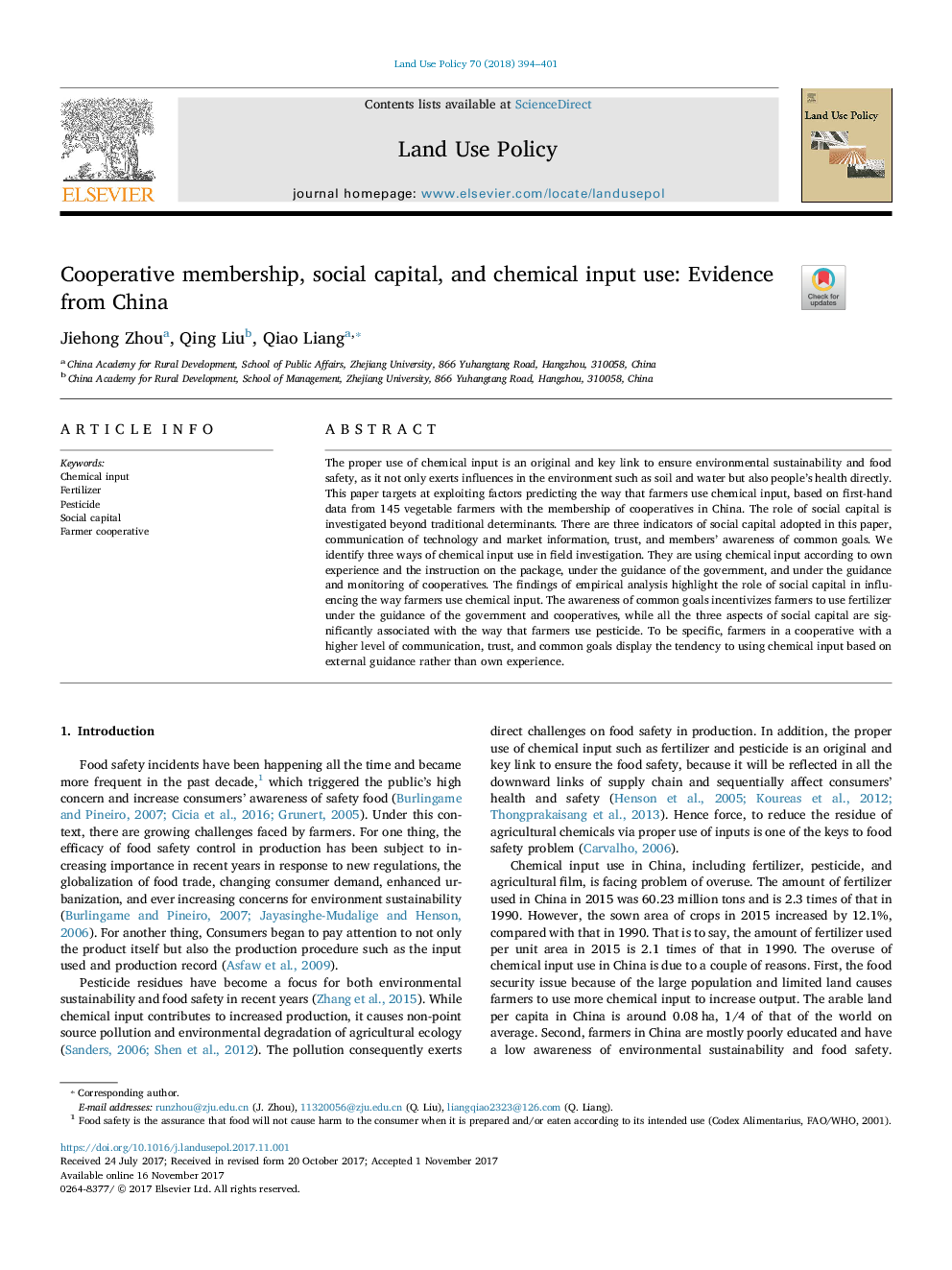ترجمه فارسی عنوان مقاله
عضویت اعضای تعاونی، سرمایه اجتماعی و استفاده از مواد شیمیایی: شواهد از چین
عنوان انگلیسی
Cooperative membership, social capital, and chemical input use: Evidence from China
| کد مقاله | سال انتشار | تعداد صفحات مقاله انگلیسی |
|---|---|---|
| 87616 | 2018 | 8 صفحه PDF |
منبع

Publisher : Elsevier - Science Direct (الزویر - ساینس دایرکت)
Journal : Land Use Policy, Volume 70, January 2018, Pages 394-401
ترجمه کلمات کلیدی
ورودی شیمیایی، کود، آفت کش ها، سرمایه اجتماعی، تعاونی کشاورز،
کلمات کلیدی انگلیسی
Chemical input; Fertilizer; Pesticide; Social capital; Farmer cooperative;

